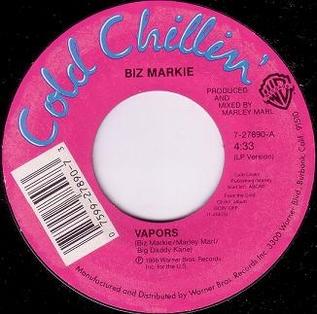
Meshell Ndegeocello is a German-born American singer-songwriter, rapper, and bassist. She has gone by the name Meshell Suhaila Bashir-Shakur which is used as a writing credit on some of her later work. Her music incorporates a wide variety of influences, including funk, soul, jazz, hip hop, reggae and rock. She has received significant critical acclaim throughout her career, being nominated for eleven Grammy Awards, and winning one. She also has been credited for helping to "spark the neo-soul movement".
Too Much 4 Much is a Canadian television series, which aired on MuchMusic. The series, which aired at 12:00am Eastern time, played controversial videos which had, for one reason or another, been banned from regular rotation on the network, and featured panel discussions on the issues raised by the videos in question. Beginning in 1991 as a series of irregular specials aired when a particularly high-profile video was in dispute, it was expanded into a regular monthly series in 1993.

Plantation Lullabies is the debut studio album by American singer-songwriter and bassist Me'shell NdegéOcello. It was released by Maverick Records on October 19, 1993, to widespread critical acclaim and has since been viewed as a landmark neo soul record.
Kevin Bray is an American film, television, commercial and music video director. Bray attended the University of Michigan and the University of Paris (Sorbonne) before completing his studies at New York University's Tisch School of the Arts. Bray also goes by his initials, KGB.

Peace Beyond Passion is the second studio album by American musician Me'shell Ndegeocello, released on June 25, 1996, on Maverick Records. The album peaked at No. 63 on the Billboard 200 albums chart and No. 15 on the Top R&B Albums chart in 1996. It went on to become Ndegeocello's most commercially successful album. Widely acclaimed at the time of its release, the album received numerous awards and accolades including a nomination for the Grammy Award for Best R&B Album at the 39th Grammy Awards in 1997.

Cookie: The Anthropological Mixtape is the fourth studio album by American soul singer and rapper Meshell Ndegeocello, released on June 4, 2002 by Maverick Records. Following the commercial underperformance of her third studio album, Bitter (1999), her label encouraged her to return to her earlier sound and record an album that sounded more "black". Ndegeocello collaborated with a number of prominent Black musicians, including Talib Kweli, Missy Elliott, and Tweet, as well as her backing band, the Conscientious Objectors, and recorded the album during the summer of 2001. The record, which Ndegeocello modeled on the mixtapes of her childhood, adopted a hip-hop and R&B-influenced sound and political lyrics similar to that of her debut album, Plantation Lullabies (1993), focusing on themes such as consumerism, revolution, religion, and same-sex attraction. Throughout the album, Ndegeocello also features samples of recorded speeches by Black activists, poets, and musicians, such as Angela Davis, Gil Scott-Heron, Countee Cullen, and Etheridge Knight.

"Vapors" is a song co-written and performed by American hip hop musician Biz Markie, issued as the fifth single from his debut studio album Goin' Off. The song peaked at #80 on the Billboard R&B chart in 1988.

"One Last Cry" is a song co-written and co-produced by Brandon Barnes, Melanie Barnes and Brian McKnight. The song was performed by American contemporary R&B singer Brian McKnight, issued as the fourth single from his eponymous debut album. It was McKnight's first solo hit on the Billboard Hot 100 chart, peaking at number 13 in 1993.

Lady is a song co-written, co-produced and performed by American neo soul singer D'Angelo, issued as the third single from his debut studio album, Brown Sugar (1995). A remixed version of the song was also released, featuring vocals from American hip hop musician AZ. Separate music videos were created for both versions of the song.

"Maybe I Deserve" is a song written, produced and performed by American contemporary R&B singer Tank, issued as the first single from his debut studio album Force of Nature (2001). The song is his biggest hit to date on the US Billboard Hot 100, peaking at number 38 in 2001.

Comet, Come to Me is the 11th studio album by U.S. singer Meshell Ndegeocello, released 2 June 2014, on Naïve Records.

"Freakit" is a song co-written and performed by Das EFX, issued as the lead single from their second studio album Straight Up Sewaside. In 1993, the song reached #1 on the Billboard dance chart, as well as peaking at #43 on the Billboard Hot 100.

"Every Day of the Week" is a song performed by American contemporary R&B group Jade, issued as the second and final single from their second studio album, Mind, Body & Song (1994). The song is the group's last appearance to date on the Billboard Hot 100, peaking at #20 in 1994.

"Stone Cold Gentleman" is a song performed by American contemporary R&B singer Ralph Tresvant, issued as the second single from his eponymous debut album. It originally appeared on the album under the title "Stone Cold Gentleman (Rizz's Interlude)", but the title was shortened for commercial release. The song features a rap from fellow New Edition member Bobby Brown. It peaked at number 34 on the Billboard Hot 100 in 1991.

"Gangsta" is a song performed by American contemporary R&B group Bell Biv DeVoe, issued as a stand-alone single in 1993 via MCA Records. The song peaked at #21 on the Billboard Hot 100. The song was also featured on an episode of The Fresh Prince of Bel-Air.

"Don't Talk" is a song written, produced and performed by American contemporary R&B singer Jon B, issued as the only official single from his third studio album Pleasures U Like. The song peaked at #58 on the Billboard Hot 100 in 2001.

"Take Care of Home" is a song performed by American contemporary R&B singer Dave Hollister, issued as the second and final single from his second studio album Chicago '85... The Movie. The song peaked at number 39 on the US Hot R&B/Hip-Hop Songs chart in 2001.

"All the Things " is a song by American R&B singer Joe. It was written by Joe, Joshua Thompson, and Michele Williams and produced by Joe and Thompson. The song originally appeared on the soundtrack to the film Don't Be a Menace to South Central While Drinking Your Juice in the Hood and was later included as the opening track on his second studio album All That I Am (1997). It was his first hit on the US Billboard Hot 100, peaking at number 11 in 1996. The single was certified gold by the Recording Industry Association of America (RIAA) on April 10, 1996.

"Do You Like This" is a song co-written and performed by American contemporary R&B singer Rome, issued as the second single from his eponymous debut album. It was his last song to chart on the Billboard Hot 100, peaking at #31 in 1997.

"The Way Love Goes" is a song co-written, co-produced and performed by American contemporary R&B singer Brian McKnight. It was issued as the lead single from his eponymous debut album. The song peaked at number 11 on the Billboard Hot R&B/Hip-Hop Songs chart in 1992.


















